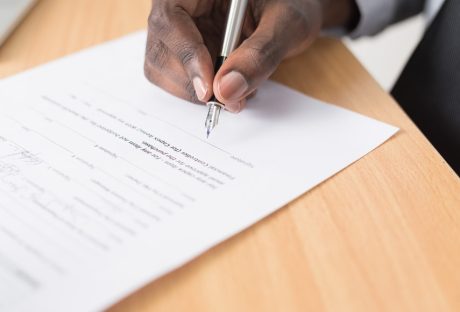Do you have what it takes to be a police officer? You might be ready to jump into the fray and do your best to keep the peace, but you must also be able to maintain the strenuous physical and mental demands required.
If you are ready to pursue a career in law enforcement, then you’re in the right place!
From things to keep an eye on to tips to hit the ground running once you are accepted into the department, we have everything you need to know about being a police officer.
10 Lucrative Ways Of Making Law Enforcement Career Successful

1. Be aware of mental health stressors
Law enforcement is not a job that is easily left behind once you make it home for the night. The things that you might see and might be forced to do could weigh heavily on your mind.
What happens if you have to defend yourself with lethal force in the face of serious potential harm?
For many people, the consequences of living with the memory of seriously harming or killing someone, regardless of whether the action was justified, are significant – and that’s just one aspect of the job that can impact mental health.
In fact, according to a 2018 study, police officers are more likely to die via suicide than they are to die while working. Not only that but also their rates of suicide are higher than in the general population. Despite this information, police officers remain stoic about their mental health stressors.
While it is understandable to be cautious about discussing your mental health, it is important to pay attention to how you’re feeling.
When you experience a stressor of some kind, seek professional help in processing the emotions you might face as a result.
2. Focus on your physical fitness
Police officers must be ready for any situation, and this includes circumstances that test their physical endurance. It is imperative that you can hold your own against other people in a physical altercation.
Taking some time to focus on your physical fitness before you become a police officer is a critical element of a long and successful career.
There are a variety of exercises you should do to prepare to be a law enforcement officer and to maintain your fitness level once you are part of the force.
One of the most important of these is running, which is often an explicit requirement of the physical ability test (PAT) that must be passed before you can enter the police academy.
You should be able to run at least a mile and a half, though the specific distance varies from precinct to precinct. Other common exercises include push-ups, sit-ups, and agility.
In addition to all of the above, officers must be prepared to climb over fences or other barriers when chasing a suspect. This portion of the PAT is known as the ‘barrier surmount’ and requires you to sprint 50 feet before climbing over a barrier at least six feet in height.
The best way to prepare is to practice on an actual six-foot wall. The goal is to pull yourself up to the top of the wall and swing the rest of your body over as smoothly as possible.
Plenty of push-ups to strengthen your arms and sit-ups to strengthen your core are recommended as you train your body to overcome barriers easily.
3. Get the right education
You might not think that a college education is a requirement for police work, but it comes in surprisingly handy.
If you acquire knowledge of the important moments in the history of law enforcement, then you will have a better understanding of the inner workings of the system.
Once you understand how the system works, you can work within it to effect justice. This makes you a better police officer.
With the above in mind, why not consider a Bachelor of Policing? Wilfrid Laurier University created its program in conjunction with actual police officers to ensure that the content is relevant to the job requirements. This kind of program can be an incredible boon for experienced and new police officers alike, especially those determined to make a positive difference in their communities.
4. Focus on ethics and integrity
Some police officers consider their weapons to be their most effective tools of the trade, but your attitude is far more important.
When you focus on ethics and integrity, you lead by example and maintain a ‘clean’ reputation in your personal and professional endeavors. Ethics will help you do the right thing even if you could get away with doing less, while integrity will ensure that your ethics are part of your everyday life.
When you decide to pursue a career in law enforcement, you are putting yourself in a position of authority over others. Make sure that you are worthy of this responsibility.
5. Assume that you are being recorded
In the past, law enforcement officers have been able to do their jobs without too much of a public spectacle. This is rapidly changing as technology becomes a more common part of life.
A decade ago, it would have been very difficult to record a crystal-clear video with excellent audio and visual quality on your phone. Today, however, this is something that even cheaper phones on the market can do.
Assume that you are always being recorded whether you see a camera or not. Choose your words and actions carefully, and make sure that you are sticking to the letter of the law and behaving in a manner that wouldn’t embarrass you in a court of law. This is another area where ethics and integrity are important, as both characteristics can help guide your behavior and ensure that it is beyond question.
Whether you are in the heat of a particularly difficult moment or are clear-headed and calm, your every move might be recorded in HD and used against you in the court of public opinion. Do your best to be a shining example of a law enforcement officer.
6. Take a financial planning class
Police work isn’t a job that everyone continues to do into old age. It is an incredibly demanding one, both physically and mentally, and the struggles and skirmishes can take their toll over time.
This means that you can really only count on a steady income while you are actively working, which might not be nearly as long as you would in other careers. Many police officers have retired only to begin new careers because they didn’t save their money while they were earning it or understand how to retain it once their career ended.
A financial planning class can help ensure that this reality is not one you face. Register for a college-level personal finance class to learn how to manage your wealth, including how to obtain and retain it. This will give you the best chance possible to enjoy your twilight years after a hard career as a law enforcement officer.
7. Value your relationships outside of work
Trauma and stress can build relationships quickly, but they can also destroy them just as easily as they were formed. Many police officers form fast friendships with their fellow officers and serve as moral support during the ups and downs of their careers.
This is not necessarily a bad thing, and it is a natural consequence of the stressful nature of the job. However, sometimes these friendships come at the price of personal relationships outside of work.
The same experiences that build in-work friendships can easily destroy out-of-work friendships if you aren’t careful.
Consider maintaining your friendships and relationships beyond your workplace for a few different reasons. First, you should be able to live your life without talking about work all the time. It is an important job, but you don’t want it to define your personality.
You might also find that being able to disconnect from the realities of your day job can be significantly healing. In order to retain your hobbies and life outside of the police force, you should take time to maintain your relationships that didn’t form in the office.
You can have friends on the force, of course. This tip isn’t meant to dissuade you of that. It is only to emphasize that life outside of the precinct deserves just as much attention.
8. Spend time with your family
In a similar vein to tip number seven, maintain your familial relationships even when you are stressed about work. Law enforcement is a somewhat unique career in that you cannot easily put it behind you when your shift ends, especially if you spend a lot of time working on call.
However, you must make an effort to value your family just as much as you do your profession and remember that once you have lost time with them, you won’t get it back. You will never be able to relive your child’s first birthday or graduation day – you only get one shot at those.
Be honest with your partner about your responsibilities and listen when they tell you what you stand to miss out on.
Time can fly by when you are busy, and you might not realize that so many milestones are passing you by. Try to be there for the important stuff – those are the moments that you’ll remember when you’re retired and easing into your golden years.
9. Act honorably both on and off duty
It is incredibly important to live your ethics both at work and outside of it. As a police officer, your reputation must be stellar. If it isn’t, you could lose a lot of trust and respect from not only your colleagues but also members of the public.
After all, if you aren’t taking care of your relationships and loved ones outside of work, why should they trust you to put other people first while you are on duty?
Not every relationship is destined to last, and, of course, you shouldn’t be expected to be perfect. Everyone is human.
However, when you can behave honorably to your loved ones, take it. Go out of your way to do the right thing even when you aren’t being paid to do so. Many law enforcement officers have had their dirty laundry dragged in public, and it’s not a pleasant experience for anyone involved.
Certain issues could easily ruin your professional life and career if they become public. Remember that public trust is the most important tool that police officers have to keep the peace and maintain their authority. Once you break it, your job becomes a lot more difficult and a lot less effective.
10. Be humble
Being a law enforcement officer is an important job with quite a bit of responsibility. It is easy to let that power go to your head and think of yourself as better than the people around you.
Do not become one of those police officers. Even though you will be held to higher standards than many civilians, you are not inherently more important than any of them. Do your job just like everyone else.
Be a benefit to the community by being approachable, non-judgmental, and even considerate of the people around you. It costs you nothing to be polite and treat everyone with dignity and respect, but you stand to lose quite a bit if you do the opposite. For your reputation and career, not to mention the well-being of the people around you, stay humble.
Are you ready to pursue a career as a law enforcement officer? The job isn’t easy, but it is an incredibly important one to the fabric of society.
Your choices in the line of duty have the potential to affect entire communities, so take your time to learn everything you can before you start working. Keep our tips in mind as you embark upon this journey and good luck in your travels!
Additionals:






















